Fool's Errand
Robin Hobb
In Fool's Errand, first of the "Tawny Man" trilogy, Robin Hobb brings back Fitz, hero of her emotionally powerful and intrigue-filled Assassin trilogy, from 15 years of self-imposed exile from his royal relations and from the world of power. Hobb is particularly good at the passage of time and the things it does not change; Fitz plausibly thinks of himself as older and more settled than he actually is. She is also good on the actual changes—Fitz—Fitz's mentor Chade is teetering on the brink of old age and his androgynous ally the Fool has returned to court as the fop Lord Gallant; these are characters we cared about before and she makes it matter that they have aged or altered. Fitz is bonded by Wit to a wolf; the heir, Prince Dutiful, the son he never saw, is adrift with his own Wit in a world where people get lynched for it. Hobb's leisurely story-telling never lacks urgency and menace; this is a humane book which includes nightmarish touches along the way. Her sense of the world of magic and the world of political power is acute—she makes us see more than her flawed hero, even though we share his eyes.—Roz Kaveney
0006486010
The Golden Fool
Robin Hobb
The Golden Fool, the second volume of Robin Hobb's Tawny Man trilogy, is explicitly a sequel to both the Farseer and Liveship trilogies. The palace intrigues, which Fitz has found himself dragged back into, have as much to do with the politics of trade and conquest—the war between the Bingtown traders and their living ships and the theocratic bullies of Chalced—as with the oppression of the beast-speaking Witted by the majority and the terrorism of the Piebald faction among the Witted. Fitz has always been a deeply flawed hero—growing up as a royal bastard trained in assassination has not been good for his character—and his inability to understand how deeply he is loved upsets all the people around him.
One of Robin Hobb's strengths is her capacity to set up an interesting dialogue between metaphor and the literal; at both levels, The Golden Fool is a novel about moving through estrangement to reconciliation, about finding out the truth and then finding a way of living with it. This thoughtfulness means that, as always with Hobb, Fitz's role as tutor of a magically gifted prince, is as exciting as the book's occasional explosions of violence. —Roz Kaveney
0006486029
Pastures Nouveaux
Wendy Holden
Country life doesn't prove quite so simple for the sophisticated city folk in Pastures Nouveaux, best-selling author Wendy Holden's hilarious "comedy of country manors". Although some of the rural inhabitants are poor as church mice, the majority are not and all pursue the same recreational activities (money and sex) as their urban cousins.
The belle of the country set is Rosie, a freelance illustrator, who (originally) is not desperately seeking a man, marriage or babies. In fact, natural beauty Rosie doesn't seem to have a problem with men at all. Although she has a partner (Mark is an arrogant journalist whose work involves dishing the dirt on the famous), he is quite obviously unsuitable for such a nice girl. It doesn't take long (page two) before Rosie thinks there must be more to life. So when Mark is given his own column about, wait for it, the travails of sophisticated city folk who move to the hilariously simple "country", she is soon romping with a very mixed set from the nouveaux-riches Samantha and Guy to a farmer fatale and a mysterious millionaire.
Thanks to her previous jobs on national newspapers and up-market glossies, Holden slickly draws her caricatures of urban types from the single-minded financiers, for whom extra-marital sex is a hobby, to their stick-insect, interior design-obsessed wives to vacuous, celebrity-sniffing media types. Champagne D'Vyne, Holden's posh-totty socialite and star of previous tales, even makes a cameo appearance (as herself, nach). If you are looking for a light read, nouvelle literature that won't stretch you too much, read on! —Carey Green
0747266166
Celtika
Robert Holdstock
On the evidence of this ambitious beginning to a new series, Robert Holdstock is attempting to underpin virtually everything he has written since the British Science Fiction Award-winning Mythago Wood, simultaneously weaving together the roots of all Western mythology.
Holdstock's Merlin is near immortal, and as the story opens has already walked the world for millennia, an alienated narrator; an archetype it is difficult to empathise with. Occasionally he does show human warmth: I looked at her face, so beautiful despite the greed of Time, her hair still like polished copper; into her eyes, so lovely, so clever; her breath like summer fruit; our fingers intertwined briefly. A beauty that had not faded; lost in time; almost untouchable. Long before Arthur, Merlin has become deeply involved with Jason, The Argonauts and the legendary cycle of betrayal and bloodshed between Jason and Medea. Spinning this saga into a surreal epic across centuries, Holdstock adds the quest of the young Celtic King Urtha to avenge his wife and children, and the epic march to the Oracle of Delphi of the greatest army the world has ever seen.
Written with all Holdstock's usual skill, Celtika is a strange, convoluted, intricately plotted book. Weaving so much mythology and history into one fabric results in a distant quality akin to Tolkien's The Silmarillion, producing fantasy of particular subtlety and intelligence. While knowledge of the author's previous books is not required, those who have read them will find extra resonance in exploring these austerely magical adventures from the archetype's point-of-view. —Gary S. Dalkin
0671028820
The Story of the Little Mole Who Knew it Was None of His Business
Werner Holzwarth
Age 3 and over
. The Little Mole Who Knew it Was None of His Business is, quite simply, one of the funniest books you are ever likely to read (as long as you are not easily offended, that is!), with its unusual take on a natural bodily function combined with a simple tale of nature and discovery.
When the little mole of the title discovers a pile of, well, pooh, on his head, he is absolutely certain that it doesn't belong to him, but sets out on a mission to discover who exactly the culprit really is. His investigation takes him into the world of many animals, as he wanders and compares the pile on his head to the piles that animals leave behind them.
Outrageously funny, this cracking little book is an absolute delight and not only gives children the chance to talk about one of their favourite topics for discussion, but is also an intriguing way of introducing the idea of a nature trail, taking them on a trip that will leave them both laughing and learning.
Perfect for children,of course, but if you are stuck for gift ideas for the adults in your life you may need to look no further. —Susan Harrison
1856021017
|
Mash: A Novel About Three Army Doctors
Richard Hooker
Before the movie, this is the novel that gave life to Hawkeye Pierce, Trapper John, Hot Lips Houlihan, Frank Burns, Radar O'Reilly, and the rest of the gang that made the 4077th MASH like no other place in Korea or on earth.
The doctors who worked in the Mobile Army Surgical Hospitals (MASH) during the Korean War were well trained but, like most soldiers sent to fight a war, too young for the job. In the words of the author, "a few flipped their lids, but most of them just raised hell, in a variety of ways and degrees."
For fans of the movie and the series alike, here is the original version of that perfectly corrupt football game, those martini-laced mornings and sexual escapades, and that unforgettable foray into assisted if incompleted suicide—all as funny and poignant now as they were before they became a part of America's culture and heart.
0688149553
Czech Phrase Book
Hugo
A Czech phrase book in the EYEWITNESS TRAVEL PHRASE BOOK series aimed at tourists and business travellers. It contains useful everyday phrases and sections on subjects like hotels, travel, restaurants and health as well as Recognition lists of words and signs that may be heard or seen, and a mini dictionary with 1800-2000 words.
0852851642
Evil Geniuses in a Nutshell
Illiad
While working as the creative for an ISP, thirtysomething Canadian J.D. "Illiad" Frazier enjoyed the banter and humour shared between staff, particularly between the technical and non-technical staff. A lifetime doodler, he scribbled down some of it in the form of cartoons. He passed them around the office. The drawings were (and still are) very basic, but the humour was dead accurate, and his colleagues encouraged him to produce more. Before long, the scribbled cartoons had turned into a phenomenon with a Web site and cult following. In 1999 O'Reilly published User Friendly, and, following on the popularity of that book, Evil Geniuses in a Nutshell continues the tale of life and times at Columbia Internet ISP, with its cast of techies, designers, executives, AIs, hard-core geeks and one cheeky dust-puppy.
Illiad revels in the trappings of techie culture—abundant references to Star Wars, The Hitchhiker's Guide, Tolkien , Quake and Linux ("Stef thinks he's a penguin. Is he all right?"). But there's also humour here for those who aren't white, wired 18-30 year-old males. Illiad gets the way technology is changing the way we live: our curious relationship to spam ("I read it every morning like I read headlines! 'Be wealthy in 30 days!' 'A free turnip!' and 'Babette is waiting for you!' I want Babette to be waiting for me!!"); our habit of hiding behind disembodied digital communication ("I just find that in chat I can be a lot more expressive"); plus a healthy dose of self-deprecation ("You hit it off with A.J.? That's like Angelina Jolie being attracted to Illiad. It would just be wrong.") Smart and quirky, Illiad's cartoons cut through market-speak with laugh-out-loud humour, documenting the idiosyncrasies of a subculture that's moving fast into the mainstream eye.—Tamsin Todd
156592861X
A Prayer for Owen Meany
John Irving
Owen Meany is a dwarfish boy with a strange voice who accidentally kills his best friend's mum with a baseball and believes—correctly, it transpires—that he is an instrument of God, to be redeemed by martyrdom. John Irving's novel, which inspired the 1998 Jim Carrey movie Simon Birch, is his most popular book in Britain, and perhaps the oddest Christian mystic novel since Flannery O'Connor's work. Irving fans will find much that is familiar: the New England prep-school-town setting, symbolic amputations of man and beast, the Garp-like unknown father of the narrator (Owen's orphaned best friend), the rough comedy. The scene of doltish Dr Dolder, Owen's shrink, drunkenly driving his VW down the school's marble steps is a marvellous set piece. So are the Christmas pageants Owen stars in. But it's all, as Highlights magazine used to put it, "fun with a purpose". When Owen plays baby Jesus in the pageants, and glimpses a tombstone with his death date while enacting A Christmas Carol, the slapstick doesn't change the fact that he was born to be martyred. The book's countless subplots add up to a moral argument, specifically an indictment of American foreign policy—from Vietnam to the Contras.
The book's mystic religiosity is steeped in Robertson Davies' Deptford trilogy, and the fatal baseball relates to the fatefully misdirected snowball in the first Deptford novel, Fifth Business. Tiny, symbolic Owen echoes the hero of Irving's teacher Günter Grass's The Tin Drum—the two characters share the same initials. A rollicking entertainment, Owen Meany is also a meditation on literature, history and God. —Tim Appelo
0552993697
The Fourth Hand
John Irving
The Fourth Hand is one of John Irving's finest novels to date. A man loses his hand. His search to become whole again soon makes him realise that it takes more than a new limb to find fulfilment. The novel begins with one of Irving's typically surreal scenarios: "Imagine a young man on his way to a less-than-thirty-second event—the loss of his left hand, long before he reached middle age." The unfortunate young man is the "irrefutably good-looking" television journalist Patrick Wallingford. While filing a report from a circus in India, Wallingford's left hand is eaten by a lion. Millions on TV watch the grisly scene. As friends and former lovers watch the disappearance of the reporter's hand, it becomes clear that:Patrick Wallingford initiated nothing, yet he inspired sexual unrest and unnatural longing—even as he was caught in the act of feeding a lion his left hand. He was a magnet to women of all ages and types; even lying unconscious, he was a danger to the female sex
Bereft of his left hand, Wallingford ("the lion guy") finds that both his career and his already active sex life blossom. But "Dr. Nicholas M. Zajac, a hand surgeon with Schatzman, Gingeleskie, Mengerink & Associates", soon seduces him with the offer of a hand transplant. Unfortunately, "there were some strings attached to the donor hand" in the shape of its former owner's widow, Mrs Clausen from Green Bay, Wisconsin. Wallingford soon discovers that the transplant is only the beginning of his problems, as he goes in search of what transpires to be his "fourth hand". The Fourth Hand is a wonderfully funny and compulsive novel, which manages to encapsulate Irving's hallmark black humour with an incredibly tender pathos and gentle wisdom. Wallingford is a marvellous, flawed protagonist, a foolish, vain but ultimately decent man, while Zajac is one of Irving's finest comic creations. Above all, The Fourth Hand is a wonderful and lyrical love story, which is destined to become a classic. —Jerry Brotton
0552771090
|
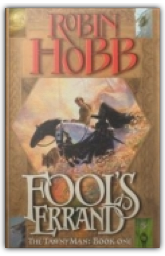
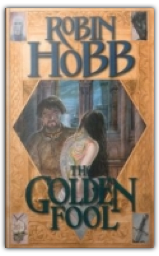
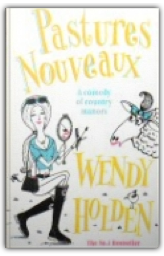
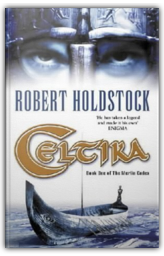
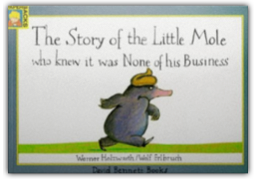
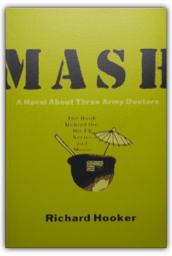
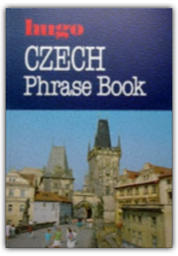
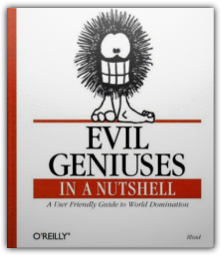
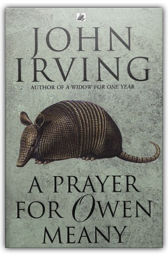
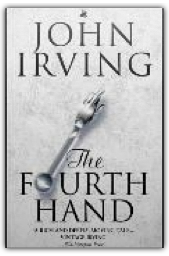

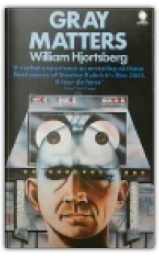

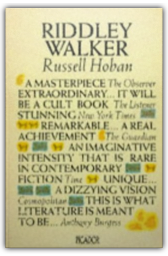
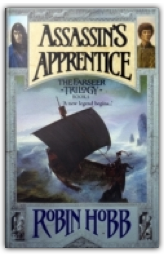
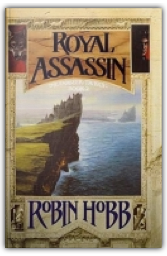
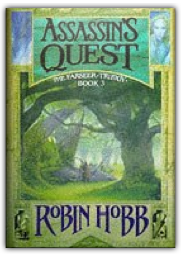

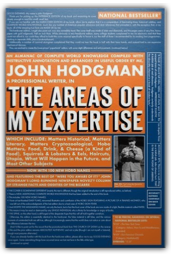
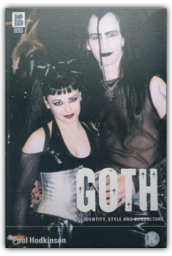
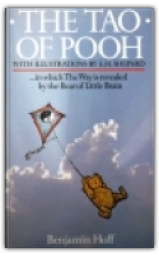
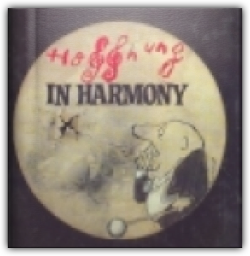
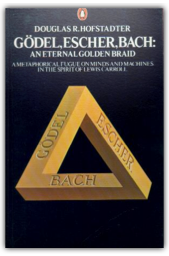
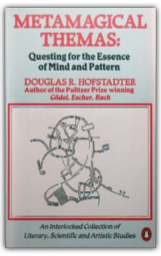
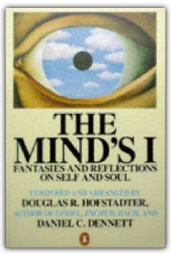
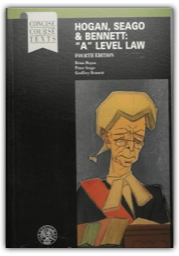
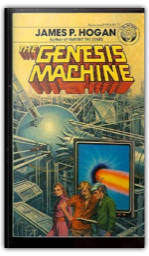
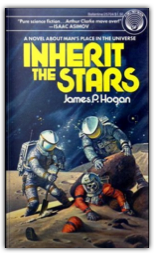
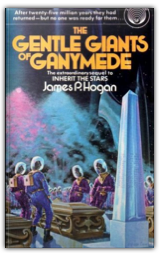
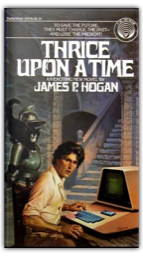
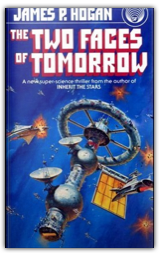
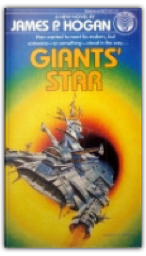
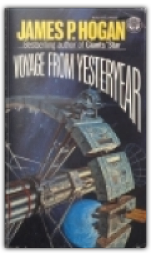
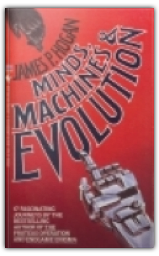


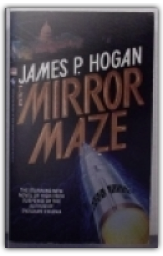
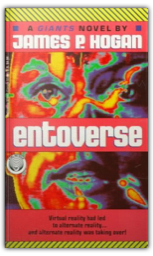
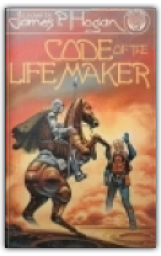
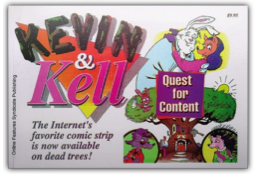
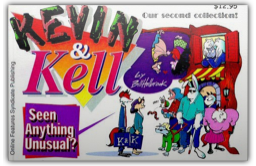
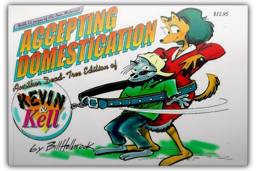
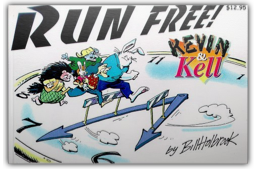

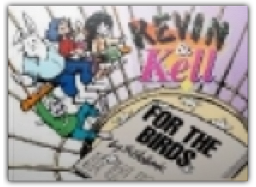
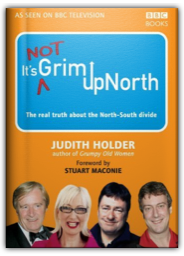

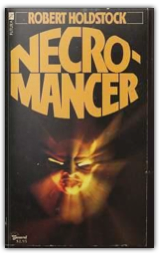
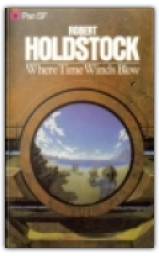
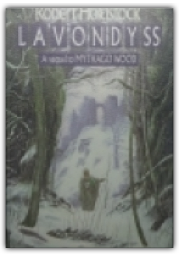
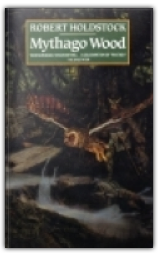
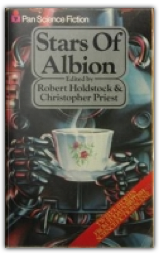
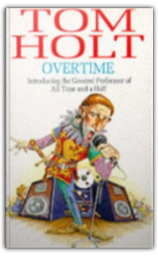
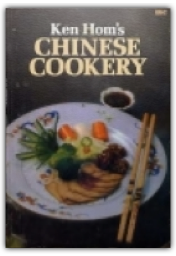
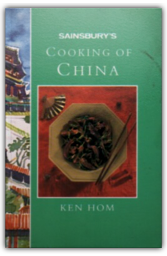
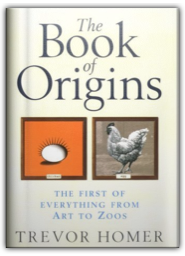

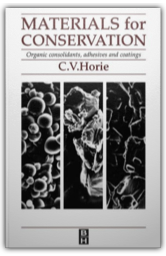
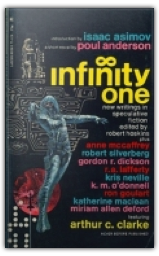
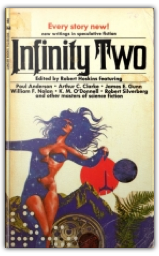
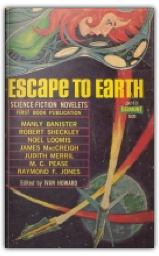
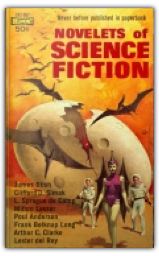
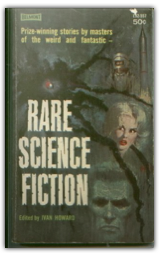
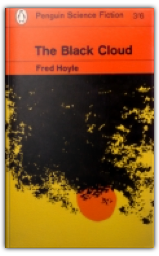
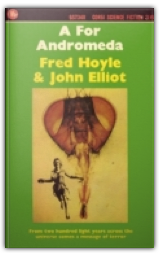


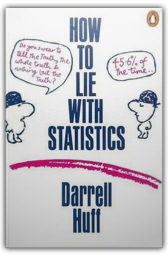
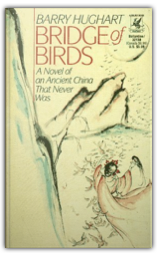
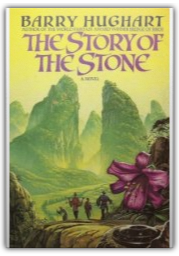


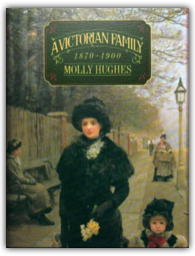
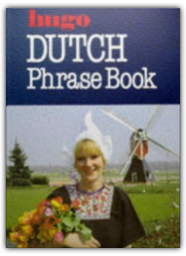
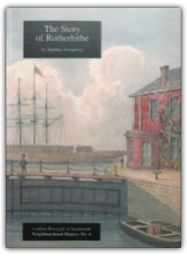
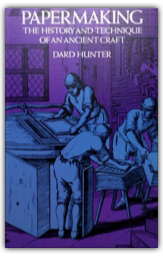
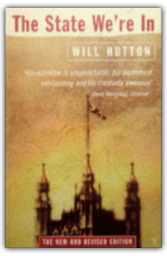
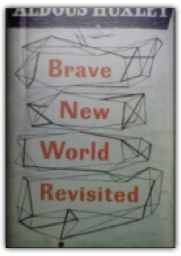
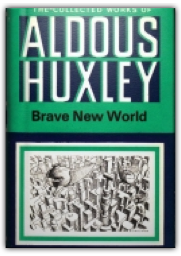
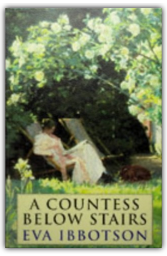
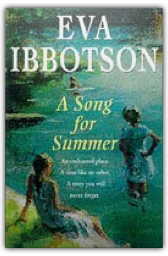
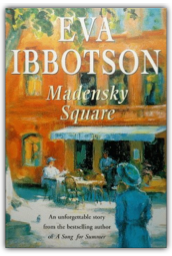
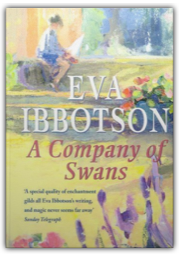
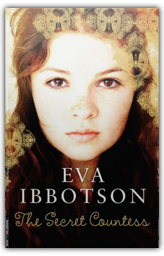

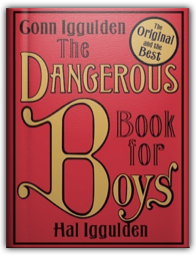

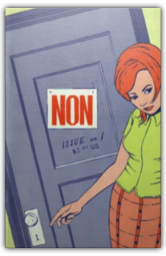
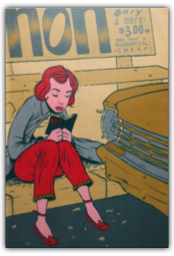
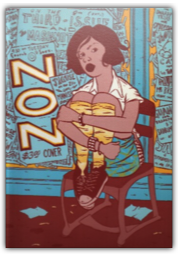
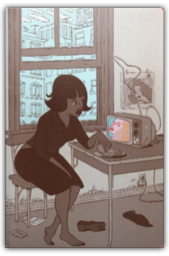
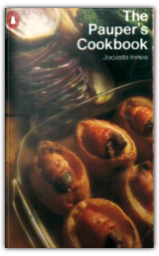
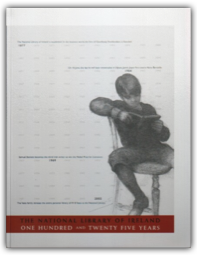
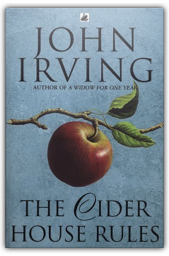
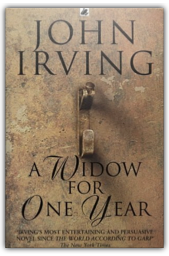

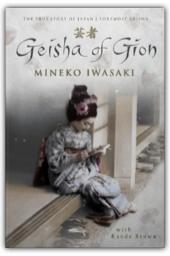
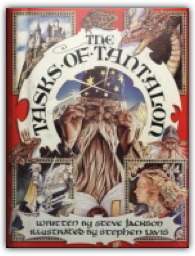
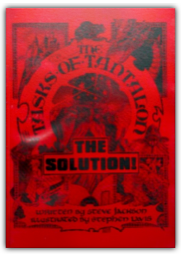
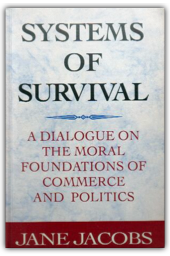
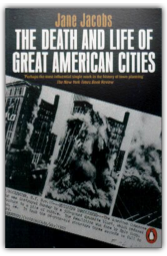
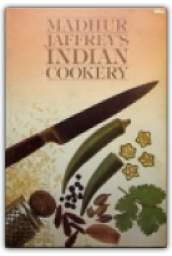
 Made with Delicious Library
Made with Delicious Library